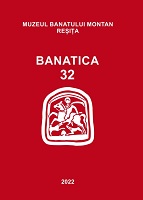PE URMA BANILOR: O ANCHETĂ DIN SECOLUL AL XVIII LEA ASUPRA AVERII ADUNATE DE EPISCOPUL DIONISIJE NOVAKOVIĆ ÎN TRANSILVANIA
FOLLOW THE MONEY: AN EIGHTEENTH-CENTURY INVESTIGATION INTO THE WEALTH AMASSED BY BISHOP DIONISIJE NOVAKOVIĆ IN TRANSYLVANIA
Author(s): Radu NediciSubject(s): Public Administration, Economic history, 18th Century, Eastern Orthodoxy
Published by: Editura Mega Print SRL
Keywords: Greek Orthodox Church; Habsburg Transylvania; episcopal income; private life; interrogation of witnesses; early modern administration;
Summary/Abstract: The appointment in 1761 of Dionisije Novaković, the Serbian bishop of Buda, as head of the Orthodox communities in Transylvania represented a compromise arrived at by the Habsburgs in their quest to solve the confessional troubles that ravaged the principality. The Greek-rite opponents of Catholicism were thus granted toleration and their own hierarch, but the solution eschewed the creation of a separate diocese under the authority of the archbishop in Sremski Karlovci. At the end of a short ministering, the death of Novaković in December 1767 raised the question of his institutional succession, alongside that of his personal inheritance. The latter was complicated by the lack of any valid will, with the government stepping in during the intestacy process to uncover the money presumed embezzled by the bishop during his tenure in Transylvania. During the ensuing inquiry, the attention focused primarily on the funds collected by the bishop on account of the gratuitous gift promised by the Orthodox Romanians in Transylvania at the time of his nomination, which was meant to support the war effort of the Monarchy in the Seven Years’ War. The topic is not entirely new to historiography, but the fresh details in the archival documents sketch a completely different picture from the one usually painted, totally exonerating Novaković. At the same time, the testimonies of those who knew him provided the authorities with more leads to the ways the bishop had abused his position to enrich himself, starting from the annual taxes collected from the priests under his authority, which were on the edge of allowed practices, to the money asked for ordaining or confirming priests to the parishes, which would induce suspicions of simony. They offer a unique insight into the demeanour of Dionisije Novaković, which warrants their publication in full in the Annexes. In the end, the documents become revealing to the rules of conduct and of the expectations that existed with regard to a Greek rite bishop in the Habsburg lands during the eighteenth century. They can equally be read as a test ground to the limits of the imperial bureaucracy that set off in search of hidden money but failed to probe the allegations and did not reach any definitive conclusions after a fiveyear-long investigation.
Journal: BANATICA
- Issue Year: 1/2022
- Issue No: 32
- Page Range: 203-253
- Page Count: 51
- Language: Romanian

